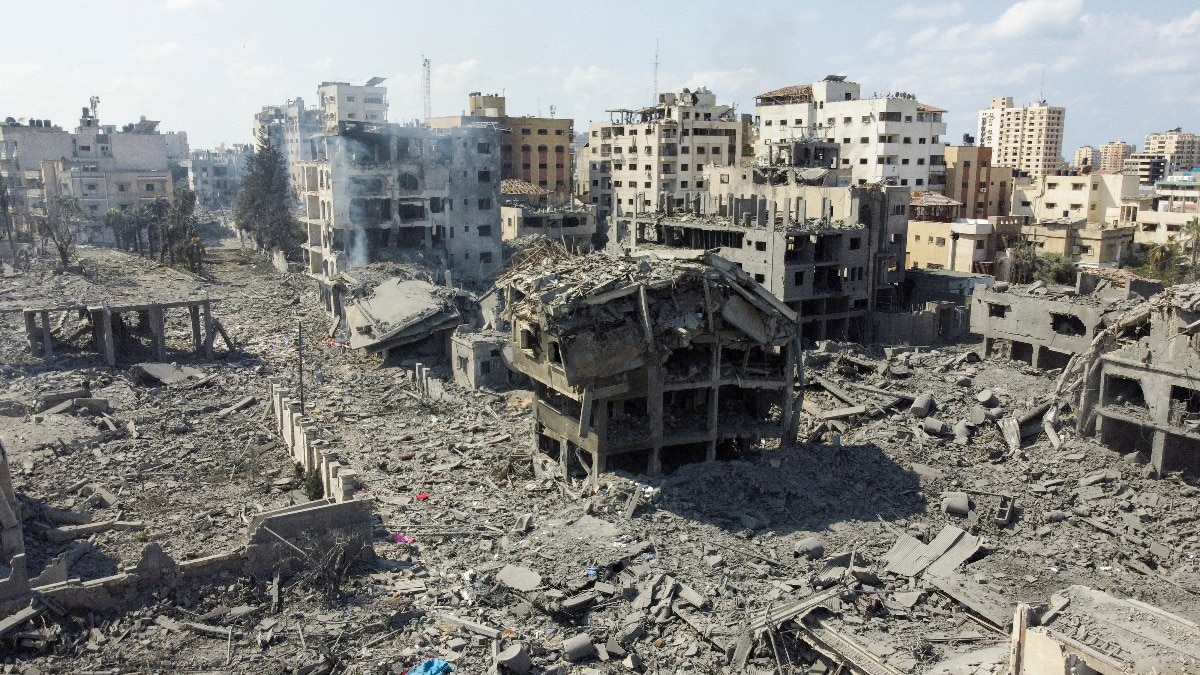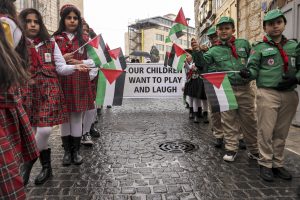2024-04-07 04:11:16
It’s exactly six months since Israel launched its deadly offensive on Hamas in Gaza after the Palestinian group attacked the southern parts of the Jewish nation on October 7 last year. With most of Gaza reduced to rubble during the period, Israel had declared two objectives — ‘eliminating’ Hamas and bringing back home hostages. But six months later, neither of the objectives have been fulfilled.
Israel, which was initially backed by its allies following Hamas’s unprecedented attack on the country, the deadliest since the Holocaust, is isolated internationally.
It faces criticism from the West and its allies, including the US, over the high number of civilian deaths. Over 33,000 people have been killed since the war began. There is also backlash over a lack of a viable plan in sight on how to end the war and what the future holds for the region.
NETANYAHU FACES INTERNATIONAL PRESSURE
Israeli Prime Minister Benjamin Netanyahu has rejected international calls for an independent Palestinian state, a stand which he has maintained for decades. He had initially argued that humanitarian aid to Gaza would mean that Hamas would regroup.
While batches of humanitarian aid were allowed after interventions from the UN, Netanyahu is facing increasing pressure from the US and other countries to stop the war and ensure that aid reaches Gaza, which has been facing a humanitarian crisis since the fighting broke out.
The UN’s world court, the International Court of Justice, which is investigating allegations of Israel committing genocide in Gaza, has ordered the Jewish nation to do more to protect civilians in Gaza.
Despite facing international pressure, Netanyahu has been adamant and is planning to launch an offensive in the southern Gaza town of Rafah, Hamas’s last known stronghold. Over one million people, who fled from other parts of the Strip, live in Rafah. The planned offensive has fuelled fears of more civilian casualties.
HUMANITARIAN CRISIS IN GAZA
Gaza, a tiny territory on the eastern coast of the Mediterranean Sea, is facing a humanitarian crisis and has been ruled by Hamas since 2007. According to experts and the UN, around one-third of the population in Gaza is facing the risk of famine.
The UN Security Council has passed resolutions calling for increased humanitarian aid to Gaza.
Israel had sealed off all borders with Gaza and argued that if left open, it would financially help Hamas and enable it to regroup and mount a comeback. Most Palestinians have fled Gaza through the Rafah border crossing with Egypt.
Recently, Israel’s security cabinet approved the reopening of Erez crossing in the northern Gaza Strip.
NO POST-WAR VISION, BREAKTHROUGH IN TRUCE TALKS
Israel has not presented a viable post-war vision to its allies and ceasefire talks remain at a standstill. The US, which is batting for a two-state solution, has suggested that the Palestinian Authority, which governs the West Bank, control Gaza as well.
Netanyahu has given a vague vision of a post-war Gaza that calls for open-ended Israeli control of the territory with local Palestinian partners overseeing the day-to-day affairs in Gaza. While Netanyahu clarified that Israel had no plans to militarily occupy Gaza, Israel’s post-war plan was rejected by the Palestinian Authority.
Ceasefire talks have not made any major headway excepting one that was achieved in late November last year. Hope for an early end to the war was ignited when a truce deal agreed between Israel and Hamas, with mediation from Qatar and Egypt to release over 100 hostages in exchange for Palestinians held in Israeli prisons.
However, the deal collapsed as Israel resumed fighting in Gaza. Around 130 hostages are still believed to be alive and held by Hamas in the Palestinian enclave as the war raged. Hamas has argued repeatedly that it will release all hostages only if Israel halted its assault, a stand that the Netanyahu government has rejected.
ISRAEL-HAMAS WAR AFTERMATH
Since the Israel-Hamas war broke out, there has always been a risk that the aftermath of the fighting would spill out to other parts of the Middle East. Firstly, Israel faced a challenge from Lebanon’s Hezbollah group on its northern border and both sides have been fighting since then.
The tensions have threatened Iran, which backs Hezbollah, to step into the conflict, especially after Israeli strikes in Syria and Lebanon. Most recently, two Iranian generals were killed in an Israeli strike this week.
Not only on land, there are tensions in the sea as well. Houthis, which control most of Yemen, have launched drone attacks in the Red Sea on commercial vessels that are linked to Israel.
The attacks, which took place as a mark of protest against Israel’s offensive in Gaza, have resulted in several ships taking a long detour to the Cape of Good Hope instead of the Suez Canal, leading to increased travelling time.
GROWING ISOLATION
While Israel’s allies backed the Jewish nation when Hamas attacked it on October 7, the support turned into resentment, with the West, particularly the US, calling on Israel to scale back its offensive due to a huge number of deaths.
The isolation and frustration reached its peak on March 25 when the US abstained from a UN Security Council resolution calling for an immediate ceasefire and the release of all hostages. The resolution was subsequently passed, and the move infuriated Israel, which said that the US had abandoned its policy in the UN.
For Israel, things have only worsened for it after seven aid workers were killed in what Israel called an errant airstrike. Six of the seven workers belonged to countries allied with Israel, which has enraged the West, including the US.
Not only that, the possible Israeli strike on Iran’s embassy in Syria and Netanyahu calling for the Al Jazeera news channel to shut down have further isolated allies. Iran has vowed massive retaliation over the Iranian embassy attack in Syria, a development that has spiked tensions in the Middle East.
So, to sum up the six months of the war so far, it has been nothing but death, destruction and despair.
Israel-Hamas war, Israel-Gaza war, Israel-Hamas war live updates, Israel-Hamas war updates, Gaza war, Israel-Hamas war 6 months, 6 months of Israel-Hamas war, Israel-Palestine conflict, Benjamin Netanyahu, Joe Biden, Gaza, West Bank
Source link
![]()



